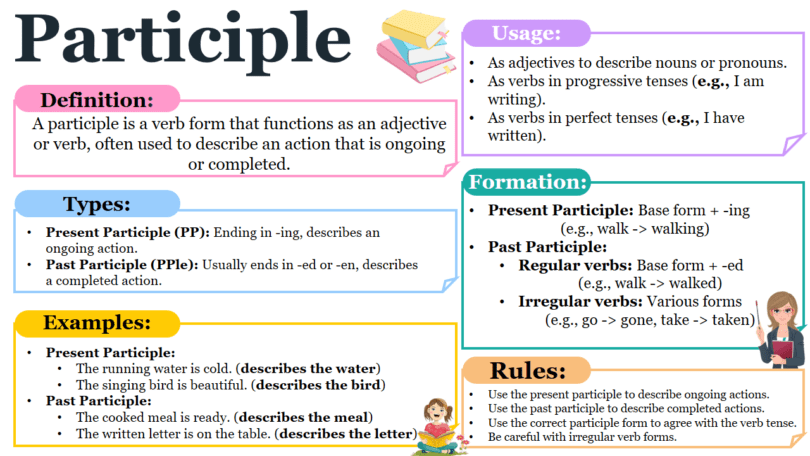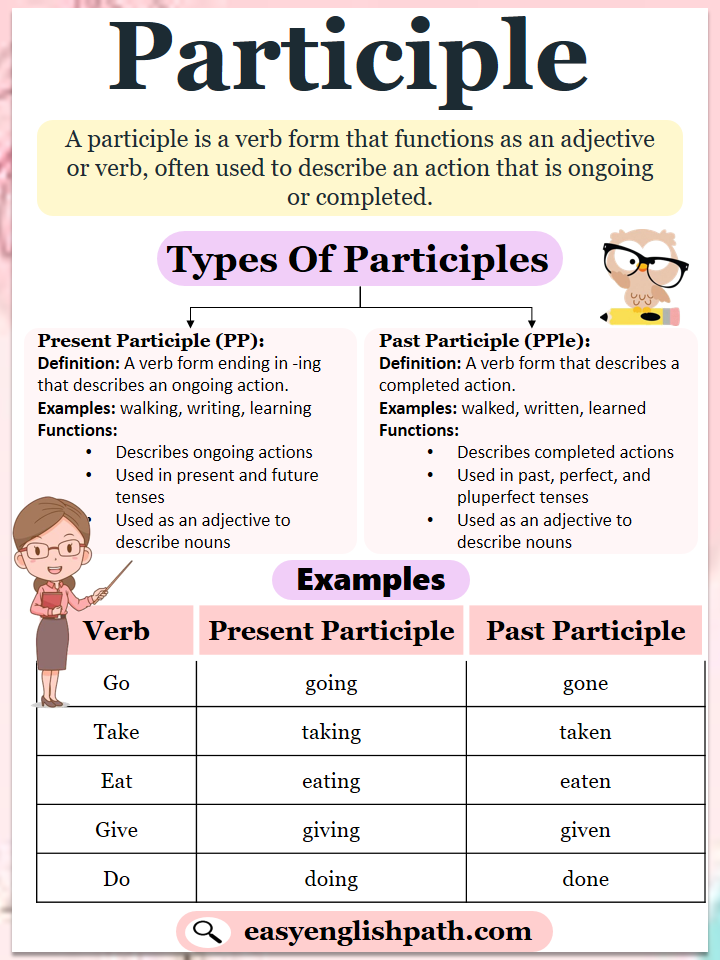A participle is a kind of verb that helps us to describe an action or a state. It’s like a verb, but it also acts like an adjective, giving us more information about something. Participles can show us if something is happening now, happened in the past, or will happen in the future. In this blog, we’ll learn more about participles and how to use them correctly.
What is a Participle?
A participle is a verb form that works as an adjective, modifying nouns or pronouns. e use participles to describe what someone or something is doing.
- The bird is singing.
- The cake is baked.
- The water is running.
- The letter is written.
- The girl is dancing.
Types of Participle:
There are two types of participle.
- Present Participle
- Past Participle
Present Participle:
The present participle is a verb form that ends in -ing and describes an action that is ongoing or in progress. It is used to indicate that the action is happening now, is continuous, or is in the process of happening.
- I am writing a book.
- She is singing a beautiful song.
- They are playing football in the park.
Past Participle:
The past participle is a verb form that usually ends in -ed or -en and describes an action that has been completed. It is used to indicate that the action happened in the past and has been finished.
- I have written a book.
- She has sung many songs.
- They have played many games.
Difference between Gerund and Participle:
Gerund and participle in English are two different forms of verbs. A gerund ends in -ing and acts like a noun, like eating or playing. A participle also ends in -ing or -ed but acts like an adjective or verb, like running or jumped. Gerunds are like names, while participles describe actions or states. They are used in different ways, so it’s important to know the difference.
Participle Example Sentences:
- The running water was cold and refreshing.
- The baked cake was delicious.
- The written letter was sent to the editor.
- The painting on the wall was beautiful.
- The cooked meal was served hot.
- The grown plants were ready to harvest.
- The spoken words were loud and clear.
- The broken toy was beyond repair.
You May Also Like this






